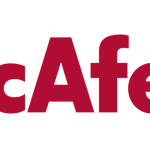- 업종: Software
- Number of terms: 9143
- Number of blossaries: 1
- Company Profile:
Crimeware is malicious software such as viruses, Trojan horses, spyware, deceptive scripts, and other programs used to commit crimes on the Internet including identity theft and fraud. Also see: malware.
Industry:Software
Cookies are blocks of text placed in a file on your computer's hard disk. Web sites use cookies to identify users who revisit their site. Cookies might contain login or registration information, "shopping cart" information or user preferences. When a server receives a browser request that includes a cookie, the server can use the information stored in the cookie to customize the web site for the user. Cookies can be used to gather more information about a user than would be possible without them.
Industry:Software
To compromise a system is to access or disclose information without authorization.
Industry:Software
Companion viruses use a feature of DOS that allows software programs with the same name, but with different extensions, to operate with different priorities. Most companion viruses create a COM file which has a higher priority than an EXE file with the same name. Thus, a virus may see a system contains the file PROGRAM. EXE and create a file called PROGRAM. COM. When the computer executes PROGRAM from the command line, the virus (PROGRAM. COM) runs before the actual PROGRAM. EXE. Often the virus will execute the original program afterwards so the system appears normal.
Industry:Software
A COM file is a type of executable file limited to 64 kb. These simple files are often used for utility programs and small routines. Because COM files are executable, viruses can infect them. This file type has the extension COM.
Industry:Software
To cold boot is to start the computer by cycling the power. A cold boot using a rescue disk (a clean floppy disk with boot instructions and virus scanning capabilities) is often necessary to clean or remove boot-sector infectors. Also see: boot, warm boot.
Industry:Software
Cluster viruses modify the directory table entries so the virus starts before any other program. The virus code only exists in one location, but running any program runs the virus as well. Because they modify the directory, cluster viruses may appear to infect every program on a disk. They are also called file system viruses.
Industry:Software
Adj. A computer, file, or disk that is free of viruses is considered clean. V. To clean is to remove a virus or other malicious software from a computer, file, or disk. Also see: disinfection.
Industry:Software
A checksum is an identifying number calculated from file characteristics. The slightest change in a file changes its checksum.
Industry:Software
A cavity virus overwrites a part of its host file without increasing the length of the file while also preserving the host's functionality.
Industry:Software
